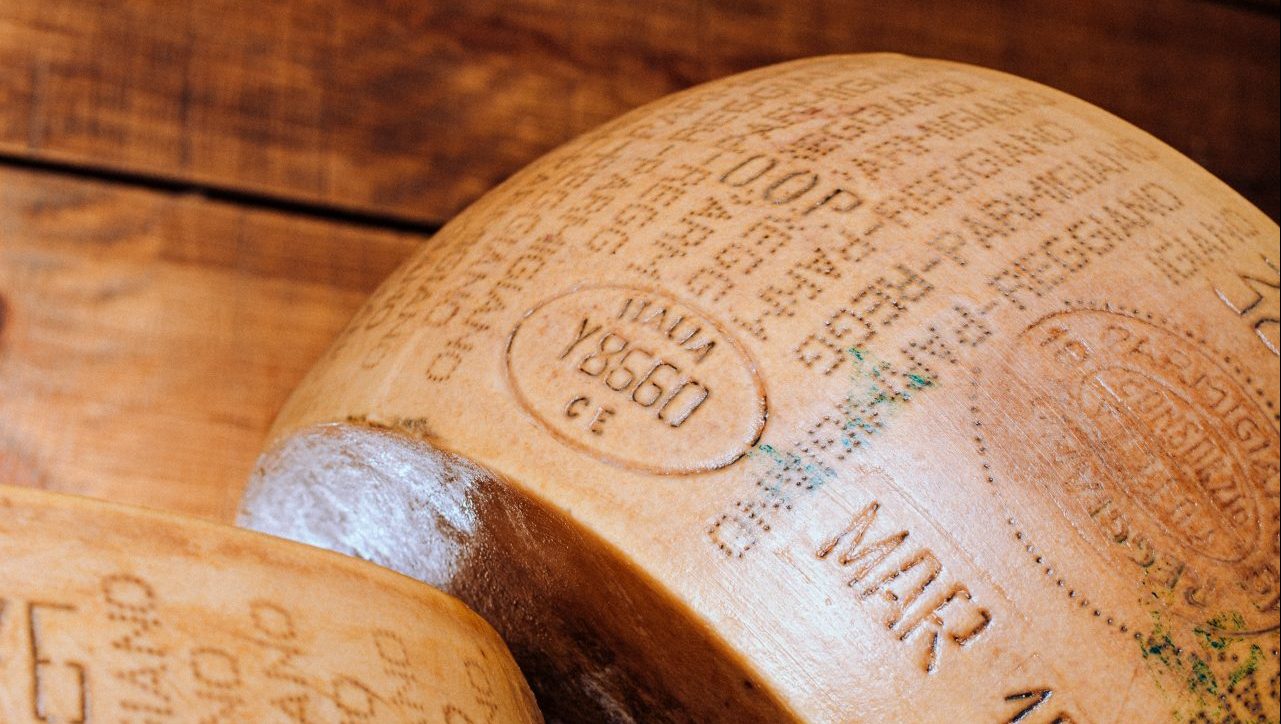When applying for a loan, if your banker turns around and advises you that you are able to put down a wheel of Parmesan cheese as security, you may think they were pulling your leg.
This is not the case when applying for a loan at Credem Banca. In 1953, the bank introduced a policy intended to help the agricultural community by offering producers of the edible golden wheel a cheesy financial solution.
“We really support being active in helping out the local farm communities in the region,” says Alberto Paulo Bechis, a spokesman for Credem Banca.
“Parmigiano Reggiano is extremely important to Emilia-Romagna, so to be able to do something that benefits the community is a win-win”, he says.
If you are a local Parmesan cheese producer borrowing money from Credem Banca, you deposit the Parmigiano Reggiano in one of their two warehouses as collateral. Normally a borrower pays interest on a loan, but in this case interest payments are offset by the fact the value of the cheese increases as it matures. “At present, we have 500,000 wheels of Parmigiano Reggiano stored,” says Bechis. “The oldest blocks are around 20 years old.”
The warehouses are huge, and very full. The cheese is stacked on wooden shelves 20 rows high and in total, these assets are reported to be worth around €200 million.
Consorzio del Formaggio Parmigiano Reggiano (the Consortium of Parmesan cheese) is the official body responsible for ensuring that the Parmesan produced is legitimate. They call the shots on whether or not the wheels get the D.O.P. trademark, which is carved into the cheese rind.
It is no secret to the Parmesan producers that for the Parmigiano to be valid, it must be from the provinces of Reggio Emilia, Bologna, Parma, Modena and Mantua in Emilia-Romagna. Furthermore, no preservatives should be added to the cheese and their cows must follow a strict diet of barley, wheat and corn, all of which much be grown in the region.
“Any deviation and the producers of Parmigiano forfeit their right to call it Parmesan”, Aurora continues.
At 12-19 months the cheese is delicate in taste, whereas at 45 months, it turns straw-coloured and develops smoky notes. From it being mild to fully mature however makes no difference to its popularity: there are dishes to suit Parmesan cheese at every stage of maturation, from grating it onto pasta to pairing it with honey.
Last year alone, over 4 million wheels (163,000 tons) were produced, and 45% of these wheels were exported out of Italy. The parmesan industry is now worth around €2.7 billion.
No wonder the great wheels of Parmigiano Reggiano are handled with such care when they are bought in for storage. The people who work inside the cheese vault dedicate their time to cleaning, turning, hammering and even sampling the Parmesan, as it is worth its weight in gold.
But despite the health of the industry and soaring demand for Parmesan cheese, the loan system is not entirely without risk. Nikos Trichakis, Associate Professor at Massachusetts Institute of Technology, spent a year conducting research on the bank. “One of the most obvious risks is that, if something goes wrong in the warehouse, will that impact the quality of the cheese over the maturing period?”, he asks rhetorically.
“These lenders know what they are doing, they know the producing community and in the supply chain this is crucial in building a mutual trust especially when it comes to lending money.”
He compares this model to modern banking strategies. “I mean, you think about what happened during the previous financial crisis, the world of mortgage-backed securities. That’s a form where I think financial institutions were extending loans without really understanding the underlying risk. And, you know, we saw what happened during the financial crisis. Where a lot of instruments that were highly rated, actually had a lot of risks.”
Such risk, he believes, came from a lack of responsible lending which he thinks Credem Banca has in place. “I think there is no coincidence that this specific model emerged in Italy in modern times because there is a lot of history there. It’s very family-centric and there is no doubt that this model has a spin on that. It’s an extremely community-based scheme”.
It may seem a little unusual, but the bank is simply lending against the value of a highly valued product that also happens to be in great demand. And there can be no confusion about where the underlying value resides. It is stacked on the great, golden rows of the storage warehouse, a much more reassuring repository of value than any found in the opaque world of credit derivatives.




